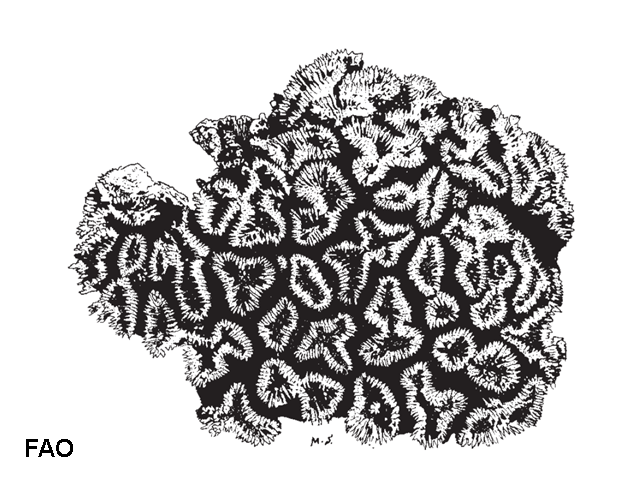| Lobophylliidae () |
| 100 cm COLD (male/unsexed) |
|
reef-associated; marine; depth range 0 - 35 m |
| Indo-Pacific: East Africa including Red Sea, to Polynesia, north to Japan and south to Australia. |
|
Formation: flat or hemispherical, mostly phaceloid with 1 to 3 centers per branch. Rarely over 0.5 m across, except in Red Sea. Calices: deep, with well defined walls. Septa: thick near the walls, thin within the calice. Tall and blunt septal teeth, size decreasing towards the columella. Color: greenish brown, gray, or mustard; usually pale centers (Ref. 848). This is one of the two species of Lobophyllia depicted here form distinctive hemispherical colonies up to 100 cm or more in diameter. In contrast to the following species the corallites of Lobophyllia corymbosa do not form long meanders but rather are mono- to tri-centric and often smaller in diameter (Ref. 269). |
| Minimum depth from Ref. 100938. Occurs in upper reef slopes (Ref. 848). Has high bleaching level and high estimated mortality in Palau (Ref. 66144). |
|
Vulnerable (VU); Date assessed: 11 July 2022 (A3ce) Ref. 123251)
|
|
|
Source and more info: www.sealifebase.org. For personal, classroom, and other internal use only. Not for publication.

